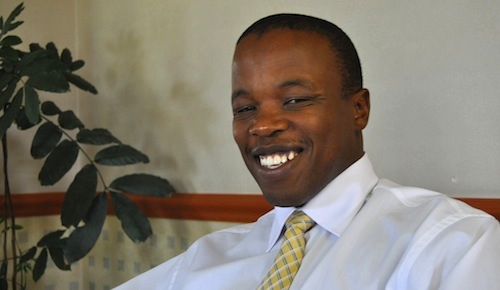
State-owned Sentech plans to spend R814m over three years to build a national wireless broadband network.
The company’s management team last week provided the first insights into its plans to have another go at building a national network in a presentation to parliament’s portfolio committee on communications.
The plan involves providing Internet access to schools, clinics and underserviced rural and municipal areas. CEO Setumo Mohapi has set a deadline of five years to get the network built, though he says it can be done in three.
TechCentral has a copy of Sentech’s presentation to parliament, which provides details of the capital expenditure the company believes it requires over the next three years to build the new network.
It says it expects to spend R241m in the 2011/2012 financial year, R199m in 2012/2013 and R374m in 2013/2014.
Sentech already has an allocation of R500m for broadband, which was given to it in 2007/2008. With interest and less tax, the value of the grant has grown to R539m.
The company pulled the plug on its MyWireless business in 2009 after demonstrating it was incapable of running a retail consumer-facing business.
Mohapi says he is aware of Sentech’s poor reputation in the telecommunications industry. Despite this, he says Sentech still has an important role to play in SA’s broadband market — as long as it’s not perceived to be in competition with the private sector.
In Sentech’s presentation, the company says that in 2012 it expects to generate R2m in sales from the broadband network, with the figure growing to R64,6m in 2013 and R134,6m in 2014.
Mohapi says Sentech research shows that connectivity to schools in SA is poor. In KwaZulu-Natal, 94% of schools do not have Internet access, from 84% four years ago. In SA’s economic hub, Gauteng, only 59% of schools are connected to the Internet.
Sentech’s first focus will be schools in KwaZulu-Natal. In the first year, the company expects to connect 1 254 schools. In 2012/2013, Limpopo will be added to the roll-out plan, with 7 352 schools additional schools to be connected nationwide. In the final year of the medium-term plan, 15 023 schools will be hooked up, with the focus extending to Eastern Cape and Mpumalanga.
Providing connectivity to schools forms the backbone of the wireless broadband project, but services will also be rolled out to clinics and community computer centres.
Sentech hasn’t yet revealed what technologies the proposed network will use, other than that it will be wireless. However, former Sentech chairman Quraysh Patel previously indicated to TechCentral that the company was considering WiMax. — Candice Jones, TechCentral
- Subscribe to our free daily newsletter
- Follow us on Twitter or on Facebook




